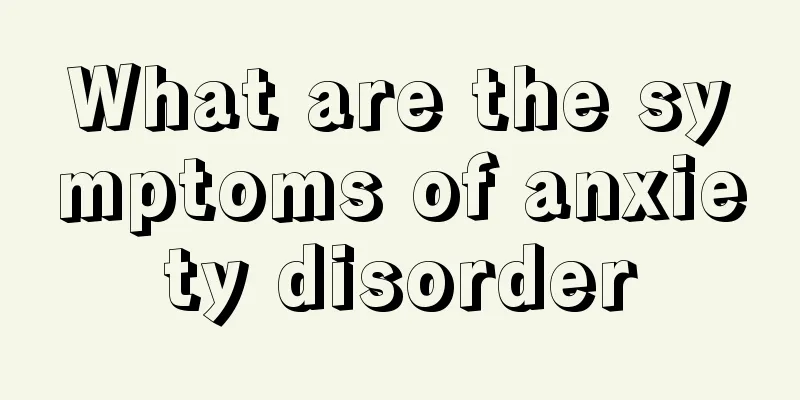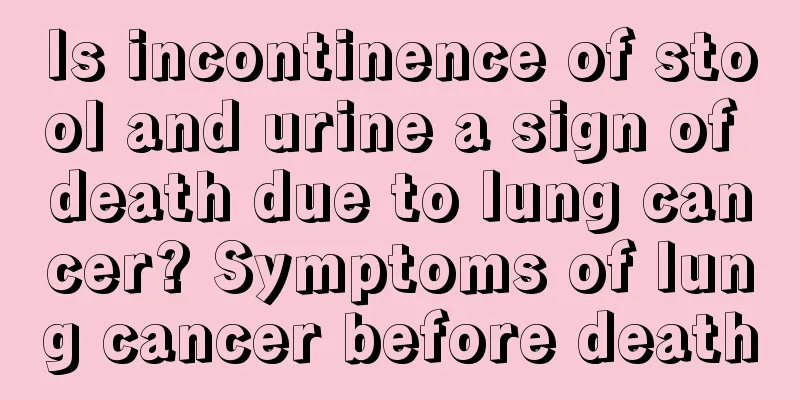What are the symptoms of anxiety disorder

|
Anxiety disorder is a persistent condition with anxiety and panic, which has a great impact on people's psychology and can cause severe discomfort to patients. There is no exact explanation for the cause of anxiety disorder, but it has a lot to do with personal lifestyle habits, genetic reasons, and family factors. So what are the symptoms of anxiety disorder? Symptoms of anxiety disorder: 1. Emotional state. Anxiety is an emotional state. The patient's basic inner experience is fear, such as being nervous, uneasy, or even extremely panic or terror. Paroxysmal or persistent occurrence of inexplicable fear, tension, anxiety, phobia, and uneasiness. The patient may have an anticipatory sense of danger, a sense that some kind of disaster is about to happen, or even a sense of death. Many patients also suffer from depressive symptoms and lack confidence and interest in their current and future lives. Sometimes I become emotional and lose my balance, often get angry for no reason, quarrel with family members, and am dissatisfied with everything. 2 Unhappiness and pain This emotion is unpleasant and painful. There may be a feeling of imminent death or of imminent collapse. People with anxiety disorders often feel that they cannot relax and their whole body is tense. His face was tense, his brows were furrowed, his expression was tense, and he sighed. 3. Overexaggeration of dangers There is actually no threat or danger. The anxiety and fear experienced by patients are very different from reality. That is, there is no actual threat or danger, or, measured by reasonable standards, the anxiety-provoking event is disproportionate to the severity of the anxiety. 4. Physical discomfort. Along with the anxiety experience, patients may also experience some physical discomfort, psychomotor restlessness and vegetative dysfunction. Physical discomfort is often an early symptom of anxiety disorder, such as palpitations, chest tightness, shortness of breath, discomfort or pain in the precordial area, rapid heartbeat, general fatigue, decreased ability to live and work, and simple daily housework becoming difficult and incompetent. Such symptoms, in turn, increase the patient's worry and anxiety, thus forming a vicious circle, seriously affecting people's physical and mental health. The vast majority of patients with mild anxiety disorders also have sleep disorders such as insomnia, early awakening, nightmares, hand tremors, finger tremors or numbness, irregular menstruation, loss of appetite, dizziness, fear and anxiety, and in severe cases, a sense of impending death. |
<<: What should I do if my nails have vertical stripes?
>>: What are the symptoms of lung yin deficiency?
Recommend
The surgical procedure for subtotal laryngectomy
Laryngectomy is a type of laryngeal resection and...
Treatment of enuresis
Enuresis, as the name suggests, is a disease in w...
What to do if pimples appear on lips
We call pimples acne. Many people have experience...
How to feel the clavicular lymph nodes?
The clavicular lymph node is a lymph node located...
Does nasopharyngeal cancer have a foul smell?
Does nasopharyngeal cancer have a foul odor? If i...
Can the water used to blanch okra be drunk?
Okra is both precious and delicious. In fact, the...
Why don't I lose weight by running every day
Many of us run to lose weight. Generally speaking...
How to check for rectal cancer
We all know that rectal cancer can cause blood in...
Is targeted therapy effective for advanced lung cancer? Matters needing attention in the treatment of advanced lung cancer
The treatment effect of late-stage lung cancer is...
What signs does kidney disease give off in men?
1. Boring. When the kidney function is poor, many...
Why the pattern disappears when baking mooncakes
Everyone eats mooncakes during the Mid-Autumn Fes...
Where is breast cancer located in the breast?
Breast cancer lumps are often found in the outer ...
Symptoms of brain cancer headache
Many friends should be aware that the probability...
Liver transplantation is more effective than local resection in treating small hepatocellular carcinoma
Clinically, liver cancer with a tumor diameter of...
Does it hurt to wear braces?
When you first wear braces, you will feel uncomfo...









